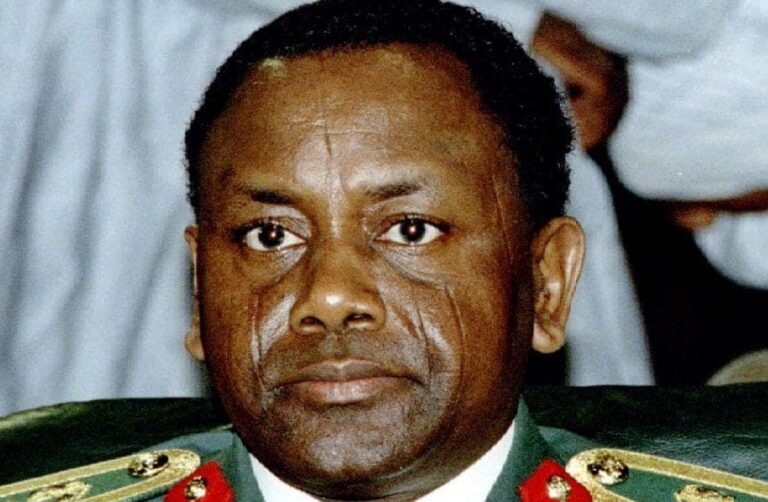
Two and a half decades have passed since the sudden death of General Sani Abacha, Nigeria’s former military president, on June 8, 1998.
The shocking news of his death reverberated across the country, coming as it did on a day that seemed like any other, with Abacha carrying out his duties as the commander of the Armed Forces.
According to BBC Hausa, the late general’s wife, Maryam Abacha, spoke about his dual life as a military commander and a family man.
“He was a man who enjoyed making jokes with his family and exercising,” she said.
Maryam further stated that the family and their local community still honor Abacha’s memory through prayer.
“We pray together with the local people and our local priests, we pray for him,” she added.
Abacha’s Military and Educational Journey
Born on September 20, 1944, in Kano, Abacha’s education took him from Nigeria to England and North America.
His military training included stints at the Military Training College in Kaduna, Nigeria, Aldershot Military Training College in England, and Warminster Military Training College in Great Britain.
He also participated in security-related courses in Canada and America in 1982.
Abacha’s involvement in Nigeria’s political landscape began with the country’s first coup d’état in 1966 and extended to various roles under different regimes.
Abacha served as President and Commander-in-Chief of the Federal Armed Forces of Nigeria from 1993 until his death in 1998.
During his time in office, he significantly impacted the Nigerian economy. Under his rule, the country’s foreign reserves swelled from $494 million in 1993 to $9.6 billion by mid-1997, while national debt was reduced from $36 billion to $27 billion.
Controversy Surrounds His Death
Abacha’s death, reportedly from a heart attack at the presidential palace, stirred controversy, with foreign diplomats, including US intelligence analysts, suggesting potential poisoning.
His legacy continues to be a topic of debate among Nigerians; while some praise his contributions to the country’s progress, others critique his authoritarian style.


